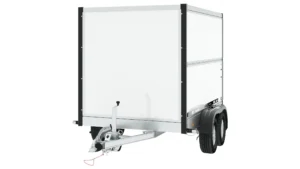Mastering Off-Road Terrain: Essential Telehandler Operator Training
2025-07-12 04:20:27
Operating a telehandler in off-road conditions presents unique challenges that demand rigorous training. Unlike standard telehandlers, off-road models are designed for uneven terrain, requiring operators to master stability control and load management. Training programs must cover hydraulic system operations, boom extensions, and weight distribution to prevent tip-overs. Industry data shows that 32% of telehandler accidents occur due to improper load handling, underscoring the need for structured off-road telehandler operator training.
Off-road telehandler operator training should prioritize terrain assessment skills. Operators must learn to identify soft ground, inclines, and obstacles that could compromise stability. Simulations and field exercises help trainees develop situational awareness, reducing the risk of rollovers. According to OSHA, nearly 40% of telehandler incidents in construction involve unstable ground conditions. Training modules should incorporate real-world scenarios, such as muddy slopes or rocky paths, to ensure operators can adapt to unpredictable off-road environments.
Safety protocols are a cornerstone of off-road telehandler operator training. Trainees must understand emergency shutdown procedures, fall protection, and PPE requirements. Since off-road telehandlers often operate in remote locations, first-aid and hazard communication training are equally vital. A 2023 industry report revealed that certified operators reduce workplace injuries by 58%, highlighting the value of comprehensive safety education.
Advanced telehandler attachments, such as grapples or winches, require additional training for off-road applications. Operators must learn attachment-specific load limits and operational techniques to maximize efficiency. For instance, using a grapple in uneven terrain demands precise hydraulic control to prevent load shifts. Training programs should include hands-on sessions with various attachments, ensuring operators can handle diverse off-road tasks confidently.
Certification and refresher courses ensure long-term competency in off-road telehandler operation. Regulatory bodies like NCCCO mandate periodic evaluations to maintain operator licenses. Data indicates that operators who undergo annual refresher training improve productivity by 22% while reducing equipment wear. Investing in continuous off-road telehandler operator training not only enhances safety but also optimizes operational performance in demanding environments.








